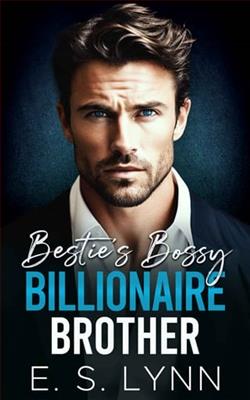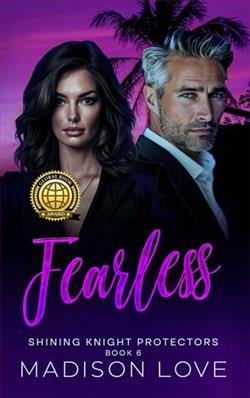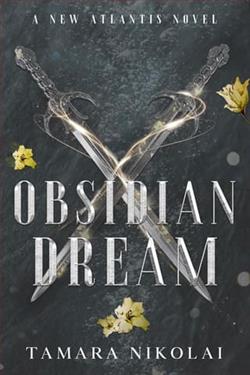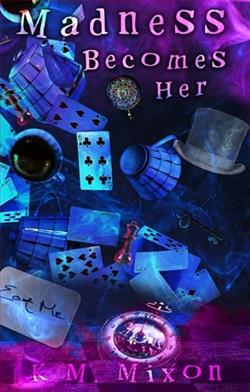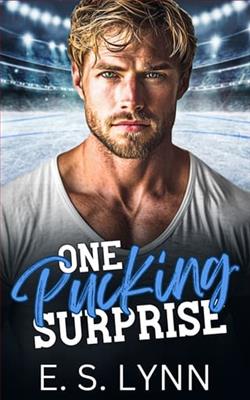Page 62 of The Last Stars in the Sky
“What are you doing out here?” he demands.
A few of them shrug. “What else is there to do?” one says sullenly.
Daniel almost wants to laugh. They’rebored, he realizes. Bored in a nuclear holocaust. “Aren’t you worried about gangs?” he asks. “Violence?”
Another shrug. “There are Marines in the town,” one boy says. “It’s pretty safe.”
Marines? He doesn’t know if that’s a good or bad thing; on the whole, he decides it is good. “Why are Marines in the town?”
“I dunno. They just are.”
“What about your parents?” Silence. He waves the gun. “Well?”
“Mine are dead,” one boy says. “They were in Boston for the day.”
Daniel feels the very faintest flicker of pity, so easy to suppress. “And the rest of you?” he demands.
A few shrugs; some of the boys shift where they stand, stare at the ground. “Well?” Daniel roars, swinging the rifle between them.
One boy flings his hands up. “I don’t know, man. Why do you care about our parents?”
Daniel suddenly finds himself laughing, a slow, rasping chuckle that turns loud and wild. The boys stare at him like he’s crazy, and maybe he is, but he could be asking Sam’s friends what they think they’re doing out at this time of night, seeing them hang their heads or look rebellious. Nothing changes, he thinks, even when everything does.
“What happened to all the students at Clarkson?” he asks them, and again he’s greeted with an uneasy silence. “Tell me!”
“I don’t know, I think most of them left, went home to their parents and stuff,” one boy says quickly. He sounds caught between annoyance and fear.
“Most?”
“Some stayed,” another chimes in, his tone uneasy. “The international students did…although some of them went with friends. But some chose to stay because they thought it would be safer, with the Marines and all. They’re guarding the campus.”
“Do any of you know a boy,” he demands, “a freshman, named Sam Elliot?”
They glance at each other again, and then shake their heads.
“Why did you leave Clarkson, if it’s so safe?” he asks, and none of them answer. After everything he’s seen, Daniel can’t believe these teenagers are outjoyriding,with no thought to the dangers. “Your parents,” he asks, his voice shaking with disbelief, “the ones who are alive, they just let you wander around when the world is in this state? When there are men like me who could blow your heads off?”
“I doubt there are any bullets in that gun,” one boy states suddenly. He starts striding toward him, a sneer twisting his face, one hand outstretched to take his gun, all cocksure arrogance.
Daniel doesn’t think, just reacts. The sound of the gunshot echoes in the still air and the boy lets out a choked gasp as he clutches his chest.
“You…shotme,” he says, his voice filled with incredulity, and Daniel gulps, his heart juddering. He thinks he might be sick. At least he didn’t kill him, he thinks numbly as blood seeps from the boy’s chest, too high up to hit any organ. The boy starts to cry, big, shuddering gulps, like a child. “I’m hurt,” he exclaims, looking at his friends. “I’mbleeding.” He soundsincredulous, but also scared. Slowly, he crumples to the ground, still clutching his chest. His face is gray, and his friends look terrified.
I shot a boy, Daniel thinks.I shot a boy younger than Sam, and I didn’t even have to.
“I think you killed him, man,” one boy says, his voice high-pitched and wavering. “I think you killed him!”
I didn’t kill him, Daniel thinks. I can’t have killed him. He stares down at the boy, feeling strangely dispassionate, almost indifferent. He turns back to the other boys, who are huddled together. “Are there any guard posts between here and the college?” he asks, and they stare at him dumbly, like they don’t know what he’s talking about. Has Clarkson been in its own little oasis, thanks to the Marines? Daniel shakes his head, impatient now. “Get to the side of the road,” he tells them, and they all shuffle over, even the boy with the bullet wound whimpering softly, crawling on his hands and knees.
Daniel opens the driver’s door of the SUV. One of the boys lets out a squawk of protest.
“That’s my dad’s car—”
“You shouldn’t have wrecked my bike,” he replies, and then he heaves himself in, slamming the door behind him. The cloud of dust as he pulls hard onto the road obscures the sight of the boys standing there, looking shocked and scared and so very young, the one he shot still huddled on the ground.
Daniel doesn’t look back. He drives blindly for several minutes, the only sound the ragged gasps of his breathing, until he realizes he isn’t just gasping, he’s crying. Tears run down his dirty face, and he hits the steering wheel with the flat of his palm, as hard as he can, several times as a howl escapes him, and then another.
He can’t believe he shot a man. Aboy. And left him on the side of the road, with no way to get back home. It’s four o’clockin the afternoon in the dead of winter and it’s freezing. Will those boys die? He’s become what he has despised, and even that is not what makes him sob in outrage and grief. It is that he doesn’t even care.








